Lost
Time
Jason
Davey Mysteries Book 2
by
Winona Kent
Genre:
Mystery, Amateur Detective
In
1974, top UK band Figgis Green was riding high in the charts with
their blend of traditional Celtic ballads mixed with catchy, folky
pop. One of their biggest fans was sixteen-year old Pippa Gladstone,
who mysteriously vanished while she was on holiday with her parents
in Spain in March that same year.
Now
it's 2018, and founding member Mandy Green has reunited the Figs for
their last-ever Lost Time Tour. Her partner, Tony Figgis, passed away
in 1995, so his place has been taken by their son, professional jazz
guitarist (and amateur sleuth) Jason Davey.
As
the band meets in a small village on the south coast of England for
pre-tour rehearsals, Jason's approached by Duncan Stopher, a diehard
Figs fan, who brings him a photo of the band performing at the
Wiltshire Folk Festival. Standing in the foreground is Pippa
Gladstone. The only problem is the Wiltshire Folk Festival was held
in August 1974, five months after Pippa disappeared. Duncan offers
Jason a substantial sum of money to try and find out what really
happened to the young woman, whose mother had her declared officially
dead in 1981.
When
Duncan is murdered, it becomes increasingly clear to Jason that his
investigation into Pippa's disappearance is not welcome, especially
after he follows a series of clues which lead him straight back to
the girl's immediate family.
But
nothing can prepare Jason for the truth about Pippa, which he
discovers just as Figgis Green is about to take to the stage on
opening night—with or without him.
Notes
On a Missing G-String
Jason
Davey Mysteries Book 1
"A
highly entertaining caper set in a sleazy London underworld...Jason
is a well-crafted reluctant hero, and Kent’s writing is slick and
engaging throughout." - Kirkus
Reviews
The
first time we met Jason Davey, he was entertaining passengers aboard
the Alaska cruise ship Star
Sapphire,
Eight ‘til Late in the TopDeck Lounge.
Then
he came ashore, got a gig playing lead guitar at London’s Blue
Devil jazz club, and gained a certain amount of notoriety tracking
down missing musician Ben Quigley in the Canadian north.
Now
Jason’s back again, this time investigating the theft of £10,000
from a dancer’s locker at a Soho gentlemen’s club.
Jason
initially considers the case unsolvable. But the victim, Holly
Medford, owes a lot of money to London crime boss Arthur Braskey and,
fearing for her life, has gone into hiding at a posh London
hotel.
Jason’s
investigation takes him from Cha-Cha’s and Satin & Silk (two
Soho lapdancing clubs) to Moonlight Desires (an agency featuring high
class escorts) and finally to a charity firewalking event, where he
comes face to face with Braskey and discovers not everything Holly’s
been telling him is the complete truth.
As
he becomes increasingly drawn into the seamy underside of Soho, Jason
tries to save Gracie, his band-mate’s 14-year-old runaway daughter,
from Holly’s brother Radu, a ruthless pimp, while at the same time
protecting Holly herself from a vengeful Braskey—nearly losing his
life, and Gracie’s—in the process.
Notes
on a Missing G-String is
the first novel in a new mystery series featuring jazz
musican-turned-sleuth Jason Davey.
Disturbing the Peace
Jason Davey Mysteries
Prequel
Jason
Davey's last job was aboard the Star
Sapphire cruising
from Vancouver to Alaska. Hired as one of the ship's entertainers, he
played guitar in the TopDeck Lounge. You can read about those
adventures in the novel Cold
Play here.
Now
Jason's back on shore, and he has a regular gig at a jazz club in
London.
Jason's
son, Dominic, is studying film at university. When Dom asks his dad
to help track down a missing musician for a documentary he's making,
Jason leaps at the chance.
Ben
Quigley played rhythm guitar in Jason's parents' folk group Figgis
Green in the late 1960s. And he dropped off the face of the earth
four years ago.
Jason's
search ultimately takes him to Peace River, Alberta - 300 miles from
Edmonton in the Canadian north. And what he discovers there is both
intriguing - and disturbing.
Disturbing
the Peace is
a novella which introduces readers to professional musician
and amateur sleuth Jason Davey. Jason will soon feature in a new
series of full-length mystery novels, beginning with Notes
on a Missing G-String.

I have never, in my entire life, been so fundamentally freezing fucking cold.
I should have known what to expect when I looked out of the window of the plane and saw everything below completely covered in snow. I should have listened—really listened—when the Captain came over the PA to inform us we’d shortly be landing in Calgary, the local time was 2.55pm and the temperature on the ground was a balmy -26°C with a low that night expected to be in the vicinity of -30°C.
But it didn’t really sink in.
It’s one of those things you seriously cannot understand until you’ve actually experienced it.
I had a three hour layover in Calgary before my flight to Grande Prairie. I got myself through the CBSA Primary Inspection and Customs, and lugged my suitcase off the carousel, and my next order of business was to find the airport’s smoking area.
It was outside.
I was wearing a short padded winter jacket and lined hiking boots that looked and felt more like trainers. I had a pair of leather gloves stuffed into my pockets. I zipped up the jacket and put the gloves on and stepped through the airport doors.
I once had an uncle who worked for British Airways. He loved Canada. He flew there as often as he could for his holidays. He particularly loved the Canadian prairies in the winter. From Uncle Fred I learned that the winter weather in Canada was “exhilarantly bracing.”
Those are not the words I would have used to describe the moment Calgary’s -26°C winter chill met my woefully unprepared face, hands, feet and body. It was penetrating, aggressive and relentlessly unmerciful. I couldn’t see myself lasting two minutes outside, let alone the time it would take to smoke one cigarette.
I turned around and went back into the terminal and vowed, first, that my Uncle Fred was insane, and second, that I would give up my evil habit there and then.
Over the next couple of hours I chewed my way through three packages of gum and managed to distract myself with a Bento box and massive amounts of hot green tea at a Japanese restaurant on the Mezzanine level of Canadian Departures.
And then, after committing a further indignity to my unwinterized body by forcing it to walk across the tarmac to board a tiny, prop-driven Dash-8, I was on my way, at last, to Grande Prairie.
#
Ben had done this journey in the summer.
In the summer, Grande Prairie—and Peace River—would have stayed light until quite late in the evening.
In the winter, this far north, the sun gave up early. and it was dark by the time we landed at the little airport and I braced myself, one more time, for the ball-shrinking icewalk from the plane to the terminal.
I don’t think the guy at the car rental booth saw a lot of Brits come through at that time of the year. He seemed quite amused by my accent—then again, it might have been my completely inadequate jacket and useless leather gloves. I’d arranged for a decent midsize car and, as I was signing the forms and agreeing to every kind of insurance on offer, I had a clever thought, and asked about the possibility of snow tires.
“Our cars come with all weather tires,” the guy said “They’re good as long as you don’t brake suddenly in the snow or hit glare ice. Where you going?”
I told him, and he obligingly gave me a road report that included words like “mostly clear” and “some slippery sections” and “caution in low lying areas and on hills”.
“So you’re ok driving in Canadian winter conditions?” he checked.
“Absolutely,” I lied.
He gave me the keys, and my contract, and reminded me that their cars all had a No Smoking policy and that if they found any trace at all of cigarettes, including the merest whiff of burnt tobacco, I’d be landed with a hefty cleaning bill. He told me where to find the car, and then added: “Don’t forget to unplug it.”
I had not rented an electric car. And I wasn’t absolutely certain what he meant, until I’d trudged out through the snow, dragging my suitcase behind me like a defective sled, and located my vehicle, and discovered that it was, indeed, plugged into an outlet in the fence that ran along the front of the stalls.
And then I recalled my insane Uncle Fred, and his wondrous tales of engine bloc heaters that kept oil and batteries from freezing in parked cars when the temperatures fell below zero.
My car came with a handy heavy-duty bright orange extension cord, which I disconnected and stowed in the back with my luggage. I sat with the engine running and the interior heat blowing full blast for about ten minutes, trying to warm myself up. And then, I set the GPS on my phone to navigate me out of the little city and out onto Highway 2.
#
It was about eight o’clock by the time the lights of Grande Prairie disappeared behind me. And my body and brain were reminding me that it was 3am in London. Three o’clock in the morning’s normal for me. But I don’t usually get up until noon. And I’d had an extremely early start and a very long journey and travelling knocks the wind out of you. I cursed myself for not letting Katey make my travel arrangements—she’d have sensibly suggested spending the night in Grande Prairie and setting out for Peace River the next day.
It was a very long and a very dark drive on the wrong side of the road. The car had Bluetooth so on my way out of Grande Prairie I synch’d the music on my phone and had Ben Quigley’s Strat—and Figgis Green—to keep me company for the first part of the drive, and then Herbie Hancock and Charlie Mingus for the next bit. Other than the occasional truck coming at me in the opposite direction, and a few cars that were spaced out at intervals ahead of me, their rear lights shining red in the blackness, I was on my own. Occasionally the road, for no apparent reason, angled off to the north, and then back to the east, and even less occasionally, I had to slow down to pass through a settlement of people…Sexsmith…Rycroft… there was an interesting two-lane suspension bridge at a place called Dunvegan—I saw it lit up by the high beams of my headlamps—and then a long slow climb out of the valley towards a town called Fairview, which marked the halfway point of the trip.
I was in the process of congratulating myself that I hadn’t encountered any ice or snow along the way when, all of a sudden, and with no warning whatsoever, the car began to slide. I was going about 100kph, the speed limit. I had microseconds to react and it took everything I had not to panic, not to hit the brakes, to remember Uncle Fred’s wisely-learned instructions for ice-driving: turn your wheels into the skid.
I did, and the car gracefully completed a 360° turn in the middle of the highway and, after avoiding a spin-off into a snow-filled ditch, came to a complete stop on the other side of the road, facing the oncoming traffic.
I sat for a few seconds, listening to my heart pounding and trying to get my breathing back to normal. Then I realized there were bright white lights roaring towards me and I slid the car back to the other lane three seconds ahead of a huge big-rig truck that likely would have flattened me if I’d waited any longer.
I was in no shape to drive on. I needed a smoke. And a pee. Very badly. I didn’t dare stop the engine. I rolled the driver’s side window down about four inches and literally caught my breath as the freezing night air hit my face. I lit up and blew the smoke out through the gap, then opened the door a crack and
tossed the finished cigarette into the snow and extinguished it as I relieved myself.
As I closed the window I caught sight of something I’d only ever seen in pictures and heard about from others: a magnificent burst of Northern Lights—a glimmering dance of luminescent green that made me think of the peaks and dips on a graphic audio display, with much-softened edges.
They stayed with me for the next 100 km, all the way into Peace River, and then, inexplicably, faded away into the starlit night as I drove into the parking lot of the 12 Foot Davis Hotel.
The night clerk was friendly and efficient.
“You remembered to plug your car in, right?” she checked, as she handed me my keycard.
I had not. I went back outside and retrieved the thick orange extension cord and connected it to the plug hanging out of the car’s front grillwork, and then shoved the other end into the outlet.
“Gonna be a cold one tonight,” the clerk said, helpfully, after I’d run back inside, cursing my flimsy English jacket.
“Minus thirty in Calgary,” I offered.
“Minus twenty-three in the valley.”
“Almost a heatwave,” I agreed.
My room was exactly as it had been pictured—with the famous Jacuzzi occupying the corner, along with some fluffy white towels and a laminated instruction card. I imagined some randy trucker, fresh from a long haul even further north than this, stepping in for a soak with a preferred lady visitor, then repairing to the king sized bed with two tins of beer and a porn film on the TV.
I undressed, skipped the soak and the porn, and collapsed into bed without bothering to unpack.
And when I eventually woke up, it was past eleven in the morning. I’d missed the complementary hot breakfast, and I wanted to know where Ben Quigley had gone after vacating this room.

Can
you, for those who don't know you already, tell something about yourself and
how you became an author?
I was born in London, England
and grew up in Regina, Saskatchewan, where I completed my BA in English at the
University of Regina. After moving to Vancouver, I graduated from UBC with an
MFA in Creative Writing. More recently, I received my diploma in Writing for
Screen and TV from Vancouver Film School.
My writing breakthrough came
many years ago when I won First Prize in the Flare Magazine Fiction Contest
with my short story about an all-night radio newsman, Tower of Power.
My short story Dietrich's
Ash was an Okanagan Short Fiction Award winner and was published in Canadian
Author & Bookman, anthologized in Pure Fiction (Fitzhenry &
Whiteside) and broadcast on the CBC Radio program Ambience.
My short story Creatures
from Greek Mythology was a Second Prize Winner and WQ Editors Prize winner
and was published in Cross-Canada Writers Quarterly.
My spy novel Skywatcher
was a finalist in the Seal Books First Novel Competition and was published in
1989. This was followed by a sequel, The Cilla Rose Affair, and a
mystery/adventure, Cold Play, set aboard a cruise ship in Alaska.
After three time-travel
romances (Persistence of Memory, In Loving Memory and Marianne's
Memory), I returned to mysteries with Disturbing the Peace, a
novella, in 2017 and the novel Notes on a Missing G-String in 2019, both
featuring the character I first introduced in Cold Play, jazz musician /
amateur sleuth Jason Davey.
The second novel in my Jason
Davey mystery series, Lost Time, was published on August 31, 2020.
I've been a temporary
secretary, a travel agent and the Managing Editor of a literary magazine. I
recently retired from my full-time job as a Program Assistant at UBC's School
of Population and Public Health. I'm currently the BC/YT/NWT rep for the Crime
Writers of Canada and I live in New Westminster, BC, where I am happily
embracing life as a full-time author.
What is something unique/quirky about you?
I ran a completely illegal fan club for the Monkees when I was 12 years
old, and I ran a semi-official website for the actor Sean Bean between 1995 and
2012. You can still visit the website,
although it is no longer updated.
http://www.compleatseanbean.com
As an offshoot to that – I'm the person responsible for inventing the
original “Death by Cow” list of all of the films, tv shows and stage
productions in which Sean Bean's characters die. You can see it on the website!
Tell us something really interesting that's happened to you!
My dad was a travel agent so when we immigrated to Canada in 1957, we
flew on an airplane – a Super Constellation – unlike most immigrants who came
by ship. We managed a few trips back to England after that, and those were
always by ship, because, being in the business, my dad got a great discount. I
sailed on five different ocean liners between 1957 and 1968 – an Italian liner
called the Homeric (which has a guest mention in my novel, Lost Time);
a little Dutch ship, the Ryndam (the ancestor of the current megacruise
ship Ryndam, owned by Holland America); the Empress of England (a
lovely little liner owned by Canadian Pacific); her sister, the Empress of
Canada (the inspiration for the Star Sapphire in my novel Cold
Play); and the Queen Mary. The original Queen Mary. The one
that's sitting in the drydock at Long Beach, California. I sailed aboard her
when I was seven years old and although my memories are a bit patchy, I do
remember the splendour of our cabin (it was all dark wood panelling and green
silk bedspreads) and the uniqueness of having a bath-tub with an optional
salt-water tap. I also remember being very seasick and throwing up at the
dinner table (I was mortified).
My love of old steamships dates back to these voyages. It's a little
known fact, but Jason Davey (my amateur detective in Lost Time) was
actually conceived on board the Queen Mary during a voyage his parents
took to the U.S.
Where were you born/grew up?
I was born in Hampstead, which is a northern suburb of London, England.
I spent my first three years there, and then I immigrated with my parents to
Canada. I grew up in Regina, Saskatchewan, where my dad was the manager of a
travel agency. I got my BA in English from the University of Regina. I met my
husband in Regina (he was a radio newsman), and then we moved to Winnipeg for a
few years, then back to Regina, then Moose Jaw (anyone who is anyone
has lived in Moose Jaw at one time or another!) and then we finally moved out
to the west coast (Vancouver) where I've lived for the past forty years or so.
What are you passionate about these days? What do you do to unwind and
relax?
I've put these two questions together because they involve the same
things!
I'm absolutely passionate about my writing. I always have been. But I
retired from working last year (in a job unrelated to writing) and now I
finally have all day to indulge in my passion. I am a full-time writer at last!
Oddly enough, my stories also help me to unwind and relax. If I don't do some
research, or some creative work on my novels, I tend to get very tense and
bad-tempered. I need my writing fix!
My other main passion is family tree research. So far I've discovered
about 7,000 cousins :-) Most of them are very distant, and there's also a huge
mystery as to where my great-grandfather came from. I have no idea who his real
parents were, where he was actually born, and whether he had any siblings. I've
done the DNA test and that's created even more of a mystery! So I spend a lot
of time digging through my distant cousins' family trees to try and find links
and common family members. It's a bit like writing a mystery – and you'll see
that I've used my knowledge of how family tree research sites work to help
Jason solve the mystery of Pippa Gladstone in Lost Time!
Winona
Kent is an award-winning author who was born in London, England and
grew up in Regina, Saskatchewan, where she completed her BA in
English at the University of Regina. After moving to Vancouver, she
graduated from UBC with an MFA in Creative Writing. More recently,
she received her diploma in Writing for Screen and TV from Vancouver
Film School.
After a career that's included freelancing for
magazines and newspapers, long and short fiction, screenplays and tv
scripts, Winona has now returned to her first love, novels. She lives
in Vancouver, Canada.
Writing is Winona's passion.
Follow
the tour HERE
for special content and a giveaway!
$10 Amazon giftcard,
ebook set of the series – 1 winner each
#SeriesTour with Guest Post & #Giveaway
#jasondaveymysteries #privateinvestigator #mystery #winonakent #kindleunlimited


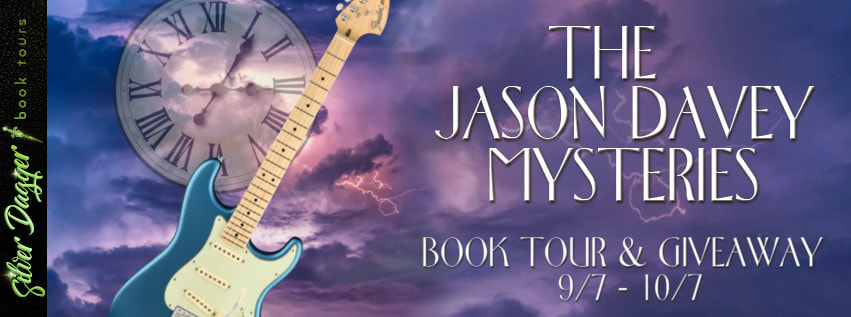
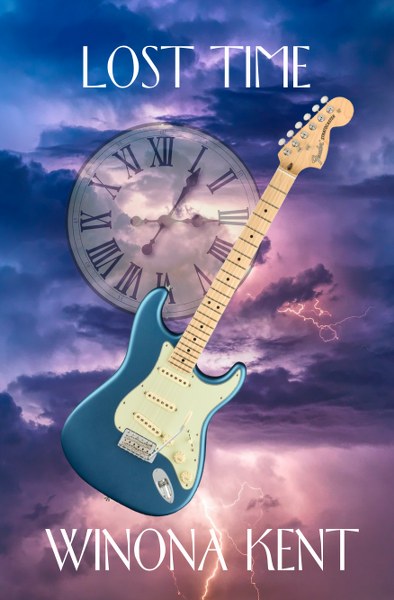

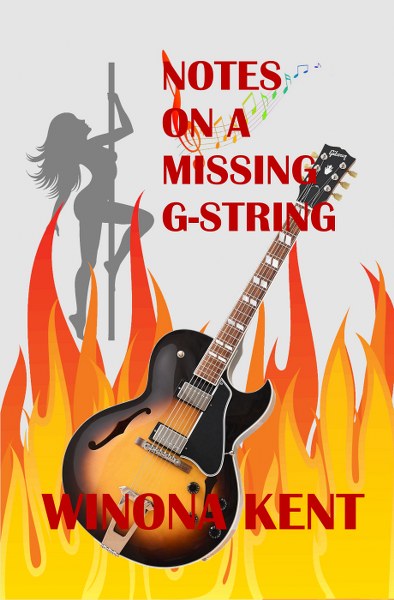
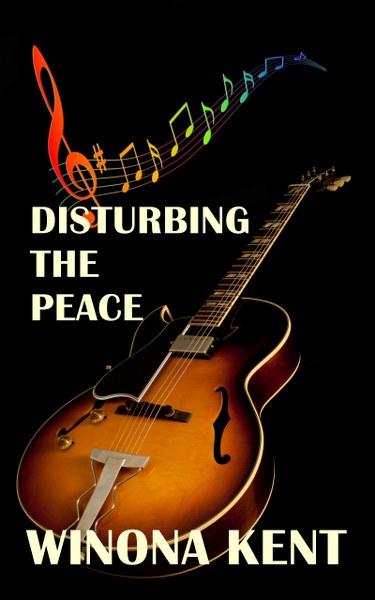


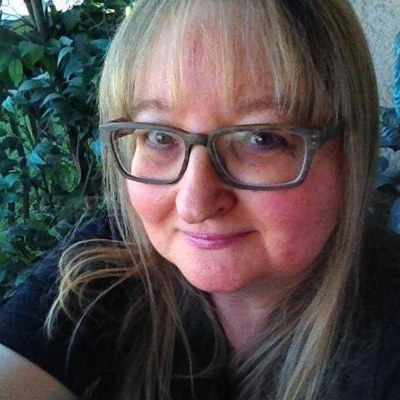


Comments
Post a Comment